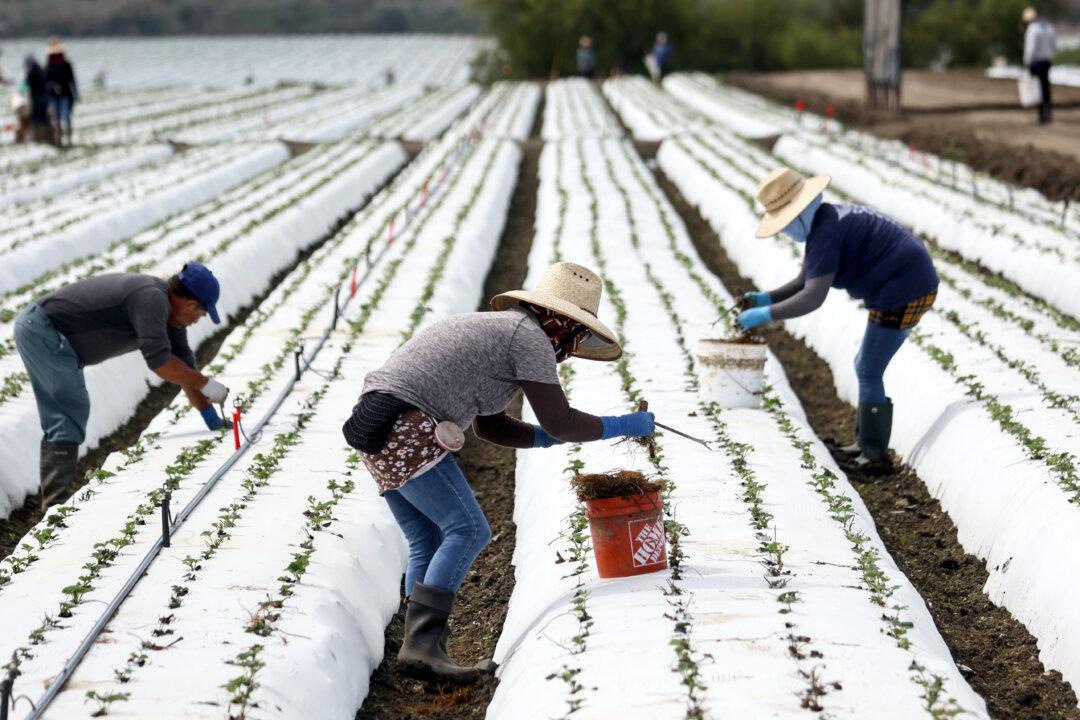Farm labor unions could get a boost in membership with new union election rules they say will make it easier for farm workers to organize—approved by California Gov. Gavin Newsom last month—despite objections from the state’s agricultural industry.
Newsom signed Assembly Bill (AB) 113 into law May 15, making changes to the state’s Agricultural Labor Relations Voting Choice Act (AB 2183) passed last year, eliminating mail-in ballots in union elections.





